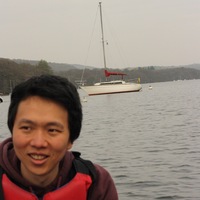- Smart spaces, Smart Cities, Citizen Science, Social Media, Microblogging, Mobile and Locative Art, and 10 moreMobile and Locative Media, Mobile social networking, Mobility/Mobilities, STS (Anthropology), Crisis communication and management, Situation awareness, LBS, Media Studies, New Media, and Digital Mediaedit
Emergencies are characterised by uncertainty. This motivates the design of information systems that model and predict complex natural, material or human processes to support understanding and reduce uncertainty through prediction. The... more
Emergencies are characterised by uncertainty. This motivates the design of information systems that model and predict complex natural, material or human processes to support understanding and reduce uncertainty through prediction. The correspondence between system models and reality, however, is also governed by uncertainties, and designers have developed methods to render 'the world' transparent in ways that can inform, fine-tune and validate models. Additionally, people experience uncertainties in their use of simulation and prediction systems. This is a major obstacle to effective utilisation. We discuss ethically and socially motivated demands for transparency.
Research Interests: Strategies and Solutions
This article examines the process of constructing, repairing, and improvising “human–signal assemblages” by drawing on in-depth interviews and virtual ethnography regarding the engineering of Wi-Fi connectivity in Taipei, Taiwan. It is... more
This article examines the process of constructing, repairing, and improvising “human–signal assemblages” by drawing on in-depth interviews and virtual ethnography regarding the engineering of Wi-Fi connectivity in Taipei, Taiwan. It is demonstrated that spatial, temporal, infrastructural, and embodied orchestrations of Wi-Fi signals both reinforce and challenge prescribed ways of conducting daily tasks. Continuity and change, enacted by attempts to incorporate Wi-Fi signals into daily urban life, are explored by discussing a wide range of practices performed by government entities, local companies and initiatives, and users themselves. Particular attention is paid to the ways in which machines, the city landscape, discourses, maps, and signs grow and multiply, as well as intersect and intervene with each other at various levels, locales, and stages of establishing Wi-Fi connections. The article thus argues for the importance of “machine juggling” as a skillful performance that mends, maintains, and improvises Wi-Fi-enabled urban everyday rhythms.
